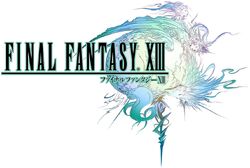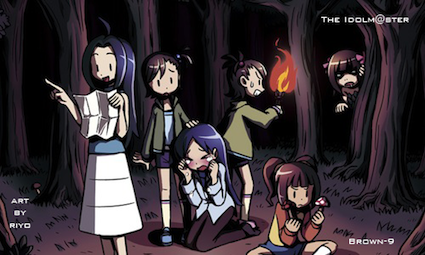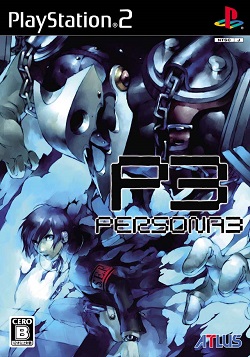When it comes to the Final Fantasy series, I have pretty shocking opinions on which entry in the series is better than the rest. Everyone is entitled to like whichever part they want above all others, but half the time people don't seem to understand the why behind my reasoning. Well, have no fear, I'm here to divulge my thought processes on this matter. Remember, this is strictly about the COMBAT of the game, not anything else.
(Yes, I know I once said this blog wouldn't be for gaming related discussion, but what the hay.)

When it comes to the original, I use it as the median. This is the standard for all games to follow, improve upon and shoot to surpass. It's a simple affair: you decide on your actions beforehand, then watch as your party and the enemy duke it out. Your party's abilities are chosen at the onset of the adventure, from a possible pool of offensive magicks, defensive magicks, and varying levels of physical prowess. It's the series' original c!ass system.
Does it work? Offensive magick and physical attacks tear through foes like a hot knife through butter. Defensive magicks do their job of protecting the party. However, as is generally the case in the series, debilitating magicks are useless. Combat turns into an Attack spam.

II reworked the way the characters leveled up. The idea was to have a means of growth that borrowed from realism; you attack often, your strength would rise. You use magick enough, and your spirit would climb. Other than that, this game used a combat system nearly identical to I. Commands are chosen prior to the round, and then you watch as the party dukes it out.
Does it work? Exploiting the leveling system makes it ridiculously easy to power level your way through the game. Magick can also be power leveled in the same fashion. However, this doesn't make your debilitation magicks any more effective. Attack spam is the way to go in this entry as well.

III reworked the leveling system again, and introduced the Job System the series would use for many entries to follow. And again, other than that, combat is the same. Actions are selected prior to the turn, then they play out.
Does it work? The Job System finally gives you incentive to do more than just spam Attack. Shifting between the jobs throughout the adventure allows you to take on any problem with a solution of your own design. How you fought through the game was almost entirely up to you. Unfortunately, many of the jobs in the game were only good for one use, then became pointless. Ultimately, only two jobs are of any real use, one that focused on Attack spam, and the other on offensive magick spam. Debilitation spells, while plentiful, are useless for the most part.

IV finally introduced the ATB, which revolutionized the series from a combat perspective. Battles flowed in real time, so the player's attention was absolutely necessary at all times. Strategy became a part of the combat experience, as you were free to delay actions for certain members until their participation was warranted. The Job System of III was removed, though characters in IV used familiar preset jobs to determine their skills.
Does it work? Learning your party's strengths and weaknesses as the roster shifted throughout the tale is one of the game's strong points. With every new character, whole new approaches to combat were not only possible, but necessary. The constant flow of battle also kept the player on their toes, and timing was especially important in the later parts of the game. Debilitation magick, while more effective in this game, is still largely unused in favor of a brute force approach. The woes of MP rear their ugly head beginning with this entry.

V improved on IV's ATB, and brought back III's Job System with improvements of its own. Players were now free to compound abilities from different jobs into other jobs, creating hybrid fighters with the strengths of one job and the powers of another.
Does it work? Mixing and matching your abilities to suit the task at hand is a huge boon and timesink in itself. Attack spam is easy to fall back on in this game, but the variety of jobs allows you to tough it out a bit and work with what your selection of abilities grants. Debilitation magick is still as useless as it was in previous entires. The biggest detriment to this game is MP, which limits your potential for magickal jobs.

VI did away with the Job System again, giving each party member a unique skill or set of skills to use in battle. The ATB was improved upon once more, adding in a hidden timer of sorts for casting spells. The more powerful the spell, the longer it would take for the command to be executed. Though a traditional leveling system was in place, only with the use of Magicite could characters increase their core attributes outside HP and MP.
Does it work? While every character as a strength to make use of in combat, it is far too easy to exploit. Half the party has abilities with no limitations and capable of raw damage output, whereas the other half is more situational. Magick is now available to all members provided they learn whatever spells they wish. Magick is expensive and powerful in this game, but is also outc!assed quickly by the skills of various characters. Rather than Attack spam, this game can easily turn into a spam of skills. Debilitation is a bit more effective in this game, but isn't practical.

VII took what VI started one step further. Rather than characters have unique skills, they have unique Limit Breaks, special actions that are available once they receive enough damage. All other actions are freeform, tied to the game's Materia System.
Does it work? The Materia System is extremely freeform, allowing any character to take on any role in combat so long as the Materia in place is geared for that. The drawback is that to accomodate this system, the general difficulty has been toned down. While it is possible to make use of every Materia and action granted, you could play a minimalist game and still win just as easy. Characters without focus have no identity in combat. Debilitation magick is again useless in this game.

VIII took what VII did yet another step further. The Junction System allowed you to use stocked magick to manipulate attributes directly as you saw fit. The only distinctions between characters were their Limit Breaks.
Does it work? In theory, Junction works as a means of using magick to strengthen your characters naturally as the game progresses. In practice, however, the system falls apart when the player has to draw large if not maximum quantites of spells from foes. To top it off, the game's scaling ensures the player will always be at a disadvantage unless they exploit the Junction System properly. Debilitation magicks are surprisingly useful in this game, but because of the limited quantity as opposed to MP, the only practical use for these spells are on bosses.

IX went back to basics with a combat system ripped straight from IV. Replacing Limit Breaks was Trance, a state where the character is more powerful for a limited time.
Does it work? Every character in IX has a role to fulfill in battle, and the cast shifts throughout the first half of the tale. Playing to your party's strengths is implied, but not necessary. The game's difficulty is toned down, allowing for more than enough flexibility in how to fight without fear of punishment for lousy tactics. Trance is also a weak replacement for Limit Breaks, as they take considerably longer to activate and aren't used at the discretion of the player. Debilitation magick isn't very useful in this game, nor is there much of it to draw from.

For the first time in years, the ATB was scrapped in favor of a traditional turn based combat system. Characters are given roles to fulfill in battle, but can expand beyond those roles at the player's discretion. Swapping characters in and out of the party as necessary is a key part of the system.
Does it work? The ability to call on whatever skill you need at will and without penalty makes this combat system the most flexible in practice to date. Every character has a purpose in battle, though it is very easy to break this fragile balance and throw the entire system into chaos. Debilitation magick now includes skills as well, and are much more effective than ever before, as well as practical thanks to higher MP counts and lower costs. Playing to your strengths is encouraged and rewarded with higher EXP payouts.

XII brings back an evolution of the ATB, the Active Dimension Battle. Combat is still governed by the ATB, only now everything is in real time, and transitions into battle from the field is eliminated, emulating combat found in MMORPGs.
Does it work? You are free to format your party in any manner you desire. You are free to approach any battle in any manner you desire. There are no distinctions between characters, so any character is fit to do any job without any hindrances. Attack spam is a must to take down the greater foes. Debilitation magick and skills are effective now, and practical as well thanks to regenerating MP. The Gambit System allows the removal of micromanagement, allowing for a more seamless combat experience.

XIII tried a different route altogether with the Command Synergy Battle system. The player stacks commands before the ATB is filled, and watches as they chain of abilities play out in sync with allies. Paradigm Shift allows for on the fly tactic changes.
Does it work? XIII's strength is in Paradigm Shift. Roles are extremely specialized, so constantly shifting amongst different set ups to take on foes is critical to victory. Emphasis on battles is placed on speed and efficiency, with the player serving more as a supervisor. Debilitation magicks are an absolute necessity, with enemy suceptibilities at an all-time high, and no MP to hinder the spellcasting process.
So there you have it. For these reasons, combat in entries such as XIII, XII and X are miles ahead of the rest. The sum of the parts is generally the argument when it comes to which game is better, but as for combat, you could say this is absolute.

 Enishida: Level-headed and surprisingly savvy, Enishida is a spectator to the antics of the board. While he'll occasionally pitch in by pointing out the ignorance of other users, he'd much rather not involve himself in the war. A manticore with an ever-changing slant.
Enishida: Level-headed and surprisingly savvy, Enishida is a spectator to the antics of the board. While he'll occasionally pitch in by pointing out the ignorance of other users, he'd much rather not involve himself in the war. A manticore with an ever-changing slant. Azami: No one really knows what Azami is ever thinking. No one ever really cares, either. She posts in favor of whichever faction seems to be on the losing side at the moment, or something completely random to derail entire conversations. Considered a fakegirl, her true standing is a mystery to all; possibly even herself.
Azami: No one really knows what Azami is ever thinking. No one ever really cares, either. She posts in favor of whichever faction seems to be on the losing side at the moment, or something completely random to derail entire conversations. Considered a fakegirl, her true standing is a mystery to all; possibly even herself. Odamaki: A connoisseur of anything with an anime theme, a blatant-if-still-closeted otaku; if there's discussion pertaining to anime in games, Odamaki is there. And seeing as how most anime themed video games are located on Sony's platform, he's a blatant cow, too. Never mind games on other platforms that would otherwise interest him.
Odamaki: A connoisseur of anything with an anime theme, a blatant-if-still-closeted otaku; if there's discussion pertaining to anime in games, Odamaki is there. And seeing as how most anime themed video games are located on Sony's platform, he's a blatant cow, too. Never mind games on other platforms that would otherwise interest him. Yume: Gaming is more than just a hobby; it can almost be described as art. Almost, for now. Yume looks for the best gaming has to offer. Sometimes it's found in new IPs, other times in sequels. But like her fondness for tea, she's willing to sample first before judging.
Yume: Gaming is more than just a hobby; it can almost be described as art. Almost, for now. Yume looks for the best gaming has to offer. Sometimes it's found in new IPs, other times in sequels. But like her fondness for tea, she's willing to sample first before judging. Takeru: A newbie user, unsure how System Wars really works. Though things have changed a lot around the board, he works under the old TOU, where mods are to be feared and insults kept to yourself. Though he aligns himself with the sheep, he isn't as close-minded as other users on the board.
Takeru: A newbie user, unsure how System Wars really works. Though things have changed a lot around the board, he works under the old TOU, where mods are to be feared and insults kept to yourself. Though he aligns himself with the sheep, he isn't as close-minded as other users on the board. Yukari: Fascinated with technology above all else, Yukari has chosen the path of the hermit for its truly free range of possibilities. All gaming began with the PC, so even today all gaming can be done on the PC. Unlike her hermit friends, however, she has no qualms with those that wish to play games on their "intended" platforms. There's a charm to it, after all, for the kiddies.
Yukari: Fascinated with technology above all else, Yukari has chosen the path of the hermit for its truly free range of possibilities. All gaming began with the PC, so even today all gaming can be done on the PC. Unlike her hermit friends, however, she has no qualms with those that wish to play games on their "intended" platforms. There's a charm to it, after all, for the kiddies. Karin: Perhaps more out of place in System Wars than even Sakurai, Karin favors the handheld over the console. "Why stay at home when you can be outside and play?" But since handheld gaming isn't as highly regarded on the board, she kicks back and plays the game that is SW.
Karin: Perhaps more out of place in System Wars than even Sakurai, Karin favors the handheld over the console. "Why stay at home when you can be outside and play?" But since handheld gaming isn't as highly regarded on the board, she kicks back and plays the game that is SW. Ruri: Helpful, friendly, well-liked, and mostly absent from System Wars. Ruri favors the unions, and only wanders into System Wars to correct "facts" being spouted by others. She's not very fond of the rivalry between cows and lems, but if asked to take a side, she'd go with lems..
Ruri: Helpful, friendly, well-liked, and mostly absent from System Wars. Ruri favors the unions, and only wanders into System Wars to correct "facts" being spouted by others. She's not very fond of the rivalry between cows and lems, but if asked to take a side, she'd go with lems.. Euphorbia: She doesn't say much. She doesn't have to. She is a model user, and as such a model mod, superior to all others. Were she to have her way, she'd strip the powers of mods who who abuse their authority. As for her stance on gaming? She once played Tetris.
Euphorbia: She doesn't say much. She doesn't have to. She is a model user, and as such a model mod, superior to all others. Were she to have her way, she'd strip the powers of mods who who abuse their authority. As for her stance on gaming? She once played Tetris. Iwachidori: Recurring guest character and well-known consolite. She drops by every once in a while to spread the good word that "consoles are better than PCs". She doesn't make very many friends because of it. Frequent target of the mods for her trolling.
Iwachidori: Recurring guest character and well-known consolite. She drops by every once in a while to spread the good word that "consoles are better than PCs". She doesn't make very many friends because of it. Frequent target of the mods for her trolling.



 .
. .
.












Log in to comment